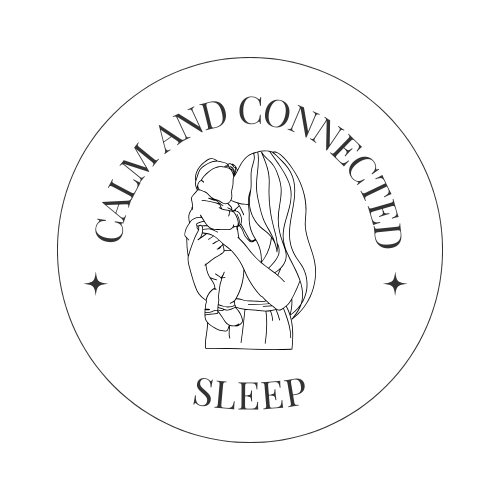Navigating Unsolicited Sleep Advice with Confidence
We’ve all been there. The moment when you mention your baby’s sleep challenges and suddenly everyone is an expert. Your mother-in-law, the grocery store cashier, your neighbor, and that random stranger at the playground all have very strong opinions about how your baby should be sleeping.
“You’re still rocking them to sleep? You’re creating bad habits!”
“My baby slept through the night at 6 weeks. Have you tried [insert miracle solution]?”
If you’ve heard any of these statements, you’re not alone. The world of infant sleep comes with more unsolicited advice than perhaps any other parenting topic. When you’re operating on limited sleep yourself, these comments can feel particularly overwhelming and confidence-shattering.
Here’s your friendly reminder: YOU are the expert on YOUR baby. You’ve been there for every nighttime wake-up, every successful nap, every bedtime struggle. You know their cues, their needs, and what works for your family.
Let’s explore how to navigate the sleep advice while still honoring your parental intuition and your unique baby’s needs.
Why Everyone Has an Opinion About Your Baby’s Sleep
Sleep is fundamental to human health—we all need it, and we all have personal experiences with it. Many people don’t understand what is realistic when it comes to infant sleep.
There are several reasons why you might receive unsolicited sleep advice:
The Generational Gap: Sleep recommendations have changed dramatically over the decades. Past generations likely put babies to sleep on their stomachs, used bumpers and blankets, and started solids at three months—all practices now contradicted by current safety guidelines. When they offer advice, they’re drawing from completely different, and often outdated, recommendations.
The Success Bias: People love sharing what worked for them. The problem? They rarely consider that their “solution” might have naturally resolved with developmental changes or that their baby might have an entirely different temperament than yours.
The Rise of Sleep Training Philosophies: From extinction methods to gentle approaches, numerous structured sleep training methodologies have emerged in recent decades. Proponents of each tend to be passionate about their chosen approach, making it seem like only one strategy will work.
Cultural Differences: Sleep practices vary tremendously across cultures. Some societies prioritize independence from early infancy, while others cosleep throughout early childhood. These cultural frameworks deeply influence what people consider “normal” or “healthy” sleep.
The Truth About Infant Sleep
Before we discuss handling unsolicited advice, let’s review some evidence-based facts about infant sleep:
Normal infant sleep is not adult sleep. Babies have shorter sleep cycles (about 45 minutes compared to our 90-120 minutes), spend more time in active REM sleep, and biologically wake more frequently than adults.
Sleep consolidation is developmental. The ability to link sleep cycles and sleep for longer stretches continues to develop as babies get older.
Nighttime waking is biologically normal and protective. Night waking is expected, especially with infants. Babies get hungry or need comfort at night just like they do during the day.
There is wide variation in “normal”. By six months, some babies may sleep 6-hour stretches while others still wake every 2-3 hours—both fall within normal developmental ranges.
Sleep needs vary between babies. While guidelines suggest 12-16 hours for infants, some thrive on less while others need more.
When you understand these fundamental truths, you can better evaluate whether advice you’re receiving aligns with both current evidence and your baby’s unique needs.
The Impact of Conflicting Advice on Parents
The constant stream of contradictory sleep recommendations doesn’t just create confusion—it can profoundly affect parental wellbeing:
Increased Anxiety: When every decision feels like it’s life-or-death and is criticized, parents often experience heightened anxiety about their choices.
Undermined Confidence: Persistent suggestions that you’re “doing it wrong” can destroy your confidence in your parenting abilities.
Decision Fatigue: Constantly weighing competing advice is exhausting and makes sleep decisions even harder.
Increased Isolation: Many parents stop sharing their struggles to avoid unwanted advice, leading to feelings of isolation during an already challenging time.
Damaged Relationships: When family members persistently critique your sleep approaches, it can strain important relationships at a time when support is crucial.
Building Your Sleep Confidence Toolkit
Rather than attempting to silence all the voices around you (an impossible task), developing strategies to maintain your confidence amid the advice storm is more effective:
1. Know Your Baby’s Sleep Cues and Patterns
Become the true expert on your baby’s sleep by keeping a simple sleep log for a week (but, not continuously obsessing over it). Note when they show sleepy signs (eye rubbing, yawning, gaze aversion), how long they sleep, and any patterns you notice. This concrete information helps you make decisions based on your baby’s actual needs rather than general advice.
2. Identify Your Sleep Values and Priorities
Different families have different sleep goals. Identify what your needs and priorities are for your family specifically.
Questions to consider:
- How does your family function best?
- What approaches align with your parenting philosophy?
- What solutions are sustainable for your particular circumstances?
3. Choose Your Information Sources Wisely
Not all sleep information is created equal. Look for resources that:
- Acknowledge the range of normal infant sleep
- Present multiple approaches rather than a single “right way”
- Consider the whole family’s wellbeing
4. Create Clear Boundaries Around Advice
You have permission to protect your parenting confidence with boundaries:
Prepare a few simple responses: Having ready phrases can help you respond confidently in the moment. Try:
- “We’re working with our pediatrician on a sleep approach that works for our family.”
- “Different babies have different sleep needs. We’re following our baby’s cues.”
- “Thanks for your concern. We’ve found what works for us.”
Redirect the conversation: Change the subject or ask the advice-giver about something unrelated to parenting.
Request specific types of support: Be clear about what would actually help: “Instead of advice, I could really use a meal delivered or someone to hold the baby while I nap.”
5. Find Your Support Team
Identify people who build you up rather than undermine your confidence:
- Professionals who respect your parenting approach
- Friends with similar philosophies
- Online communities that validate the range of normal
- Family members who support without judgment
When to Seek Professional Support
While filtering unsolicited advice is important, there are times when seeking professional guidance is appropriate:
- If your baby’s sleep patterns suddenly change drastically
- If you notice breathing issues, unusual movements, or excessive daytime sleepiness
- If sleep challenges are affecting your mental health significantly
- If you’ve tried consistent approaches for several weeks without improvement
Professional support might include:
- Your child’s pediatrician
- A certified pediatric sleep consultant (look for credentials and an approach that aligns with your values)
- A postpartum mental health specialist
- Lactation consultants (especially if feeding and sleep are interconnected)
Trusting Your Journey
Remember that infant sleep isn’t a competition or achievement. It’s a biological process that unfolds differently for each baby-parent pair.
Your sleep journey with your baby belongs to you. It will have unique challenges and triumphs. Some approaches will work beautifully; others will fail spectacularly. Through it all, you are gaining invaluable knowledge about your child that no well-meaning advice-giver could possibly possess.
You’ve been there for every drowsy feed, every midnight comfort, every early morning wake-up. You’ve studied your baby’s tired signs, celebrated their sleep victories, and comforted them through disruptions. You’ve accumulated hundreds of hours of experience with this specific child.
In the face of constant advice, remember this: You are not just a parent—you are YOUR baby’s parent. And that makes you the true expert on their sleep.

